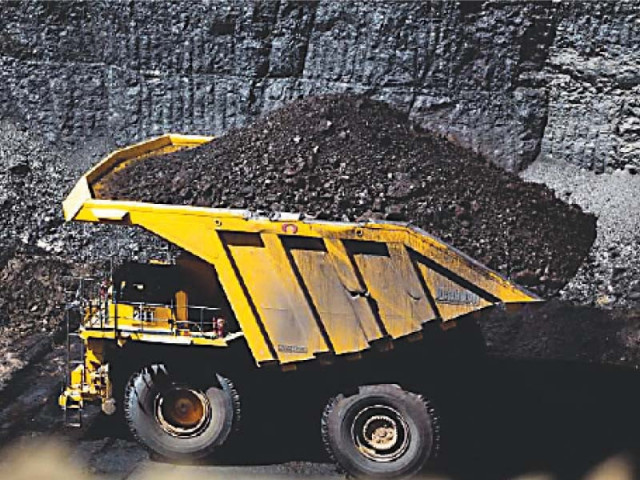Thar coal key to overcoming expensive power woes
NEPRA report says high cost of electricity denting country’s growth

The National Electric Power Regulatory Authority (Nepra) has revealed that the high cost of electricity was one of the contributing factors for decreasing the country’s economic growth rate to only 0.29% in the financial year 2022-23.
The power regulator in its ‘State of the Industry Report 2023’ noted that the high electricity rates in the country was one of the main factors affecting the country’s economic development and the decline in its gross domestic product (GDP).
It pointed out that the high cost of electricity was affecting all segments of the country’s society.
“Besides domestic consumers, the high price of electricity has had a major impact on the commercial, industrial, agriculture and services sectors,” the report read.
The report noted that this price escalation emanated primarily because of increase in the prices of essential primary energy resources including coal, oil, and gas in the international market and drastic devaluation of the local currency, which intensified the financial strain on the power sector and consumers
“Pakistan heavily relies on imported energy resources such as coal, oil and gas. The devaluation of the rupee leads to higher import costs, directly influencing the pricing of electricity and resulting in increased tariffs for consumers. Moreover, the power sector is heavily dependent on imported equipment and technology. A devalued rupee further amplifies the cost of such imports, making it more expensive to maintain and upgrade power infrastructure.”
It was noted in the report that from an economic perspective, nuclear and Thar coal-based plants stood as the most viable options for base load power.
“[This necessitated] concerted efforts towards further developing Thar Coal mines and associated infrastructure such as railways.”
The report continued that the Thar Coal Power Plant was contributing 10% to the energy sector by utilising its highest production capacity, which could be increased to 15 to 20% to significantly reduce the cost of electricity.
Commenting on the Nepra report and the impact of expensive electricity on economic growth, Yousuf M Farooq, the director of research at Chase Securities, said this situation called for increased reliance on coal resources.
He added that Thar's coal-fired power plants were the lowest-cost electricity producers in the country.
The expert pointed out that the production cost of electricity from Thar coal was Rs5 to Rs7 per kilowatt while that generated from the imported one was costing Rs15 to Rs25 per kilowatt.
He said Pakistan had started generating electricity from Thar coal after a delay of 50 years.
“In order to make full use of Thar coal, it is necessary to create instruments for investment in it with the federal government's sovereign guarantee in collaboration with the central bank,” he added.
Farooq noted that coal mining was capital intensive and a high cost industry.
“Global financing for the sector has closed so public-private partnerships at the country level are the only way to reap economic benefits from the vast local coal reserves.”


















COMMENTS
Comments are moderated and generally will be posted if they are on-topic and not abusive.
For more information, please see our Comments FAQ